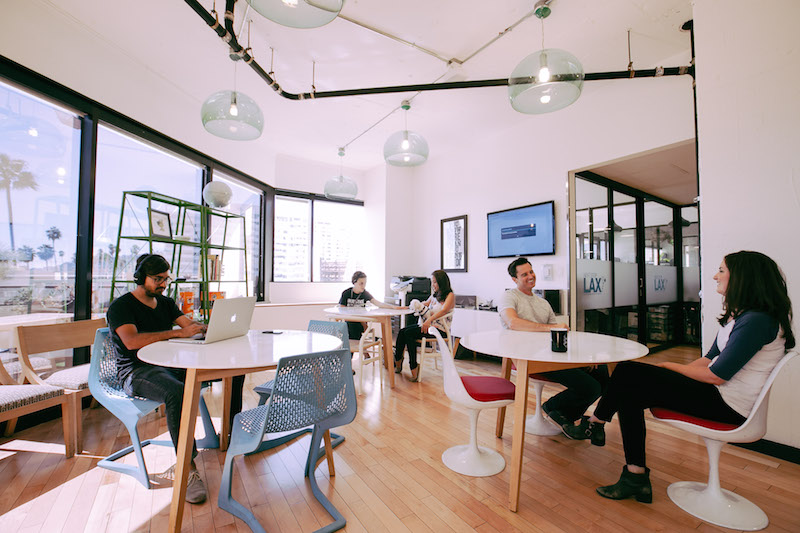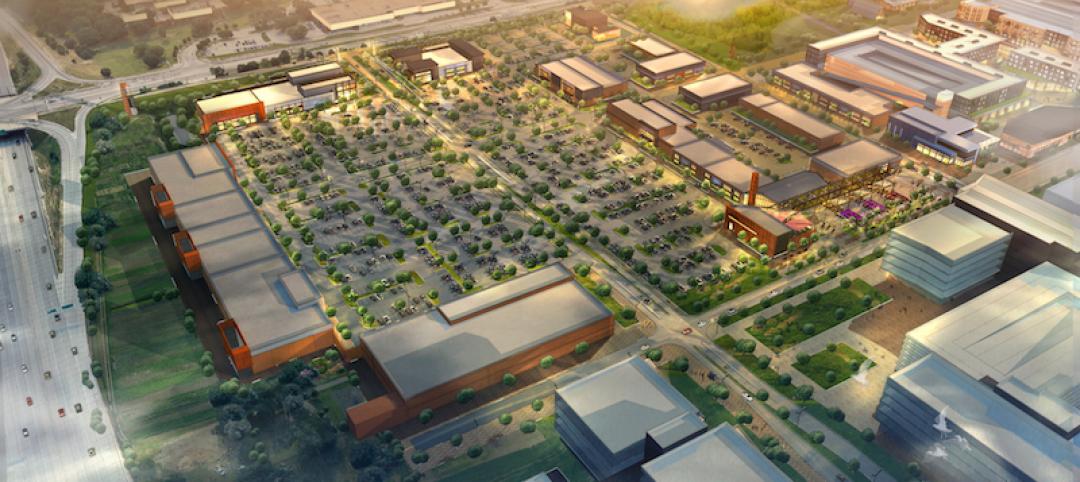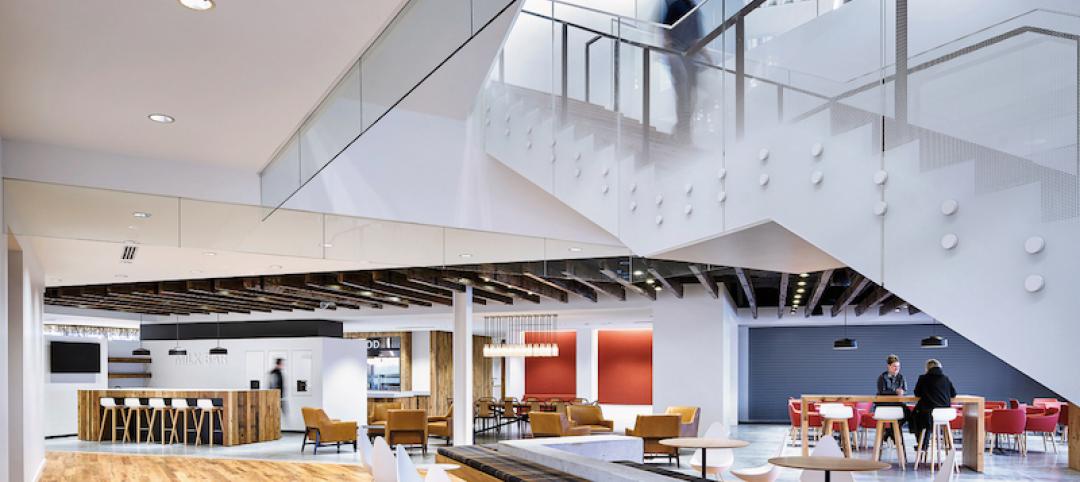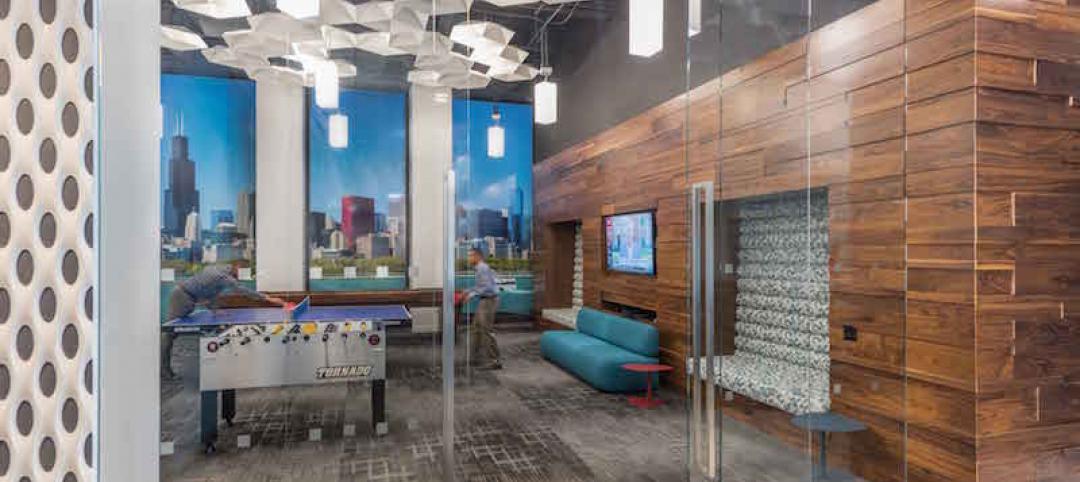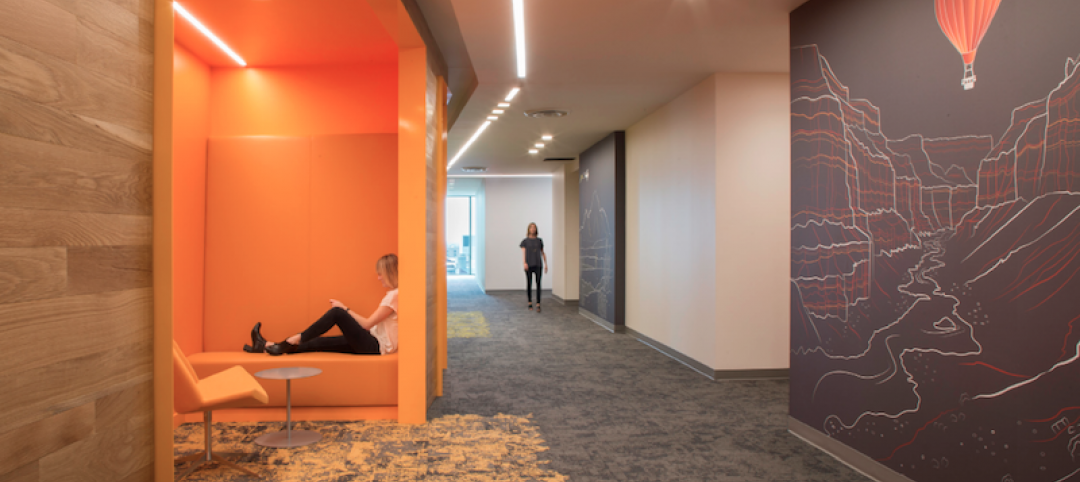WeWork, the New York-based urban workspace designer and redeveloper that’s one of the fastest-growing companies in the U.S., has acquired Fieldlens, a six-year-old producer of construction management applications that allow for more efficient on-site communications.
Most construction projects “are broken social networks,” says Doug Chambers, Fieldlens’ founder. His company’s app helps make a jobsite environment more like Facebook or a social feed, where everyone on site is communicating in real time, all the time.
An example Chambers gives is a project manager who is walking a site, and using the app on his smartphone to send observations, pictures, confirmations, and directives to other crew members. Chambers says that on one jobsite in Buffalo, N.Y., the Fieldlens app is facilitating 1,000 interactions per day, on average, among the 80 to 100 workers on site.
“Fieldlens lets people get back to work,” and not get bogged down on a lot of administrative and paperwork duties, says Chambers.
For the past two years, WeWork has been one of Fieldlens’ biggest customers. And its use has “ramped up pretty rapidly” over the past six months, says Chambers, as WeWork “has grown like crazy.”
Founded in 2010, WeWork currently has more than 120,000 members globally working out of 149 locations in 45 cities in 13 countries. WeWork so far has redeveloped more than 8 million sf of space to coworker offices. It is about to expand into India and Colombia.
In a recent blog, WeWork’s Chief Product Officer David Fano said the company is opening between five and 10 new locations a month. “And we’ve only begun to scratch the surface of global demand.” The company has also recently expanded into co-living redevelopment.
“WeWork is a train moving at 200 miles per hour,” says Aaron Fritsch, WeWork’s head of product systems and operations. “We’re a mission-driven company, and what we love about Fieldlens is how it’s focused on changing and improving the industry. It saw that there’s a better way that [project management] could be done.”
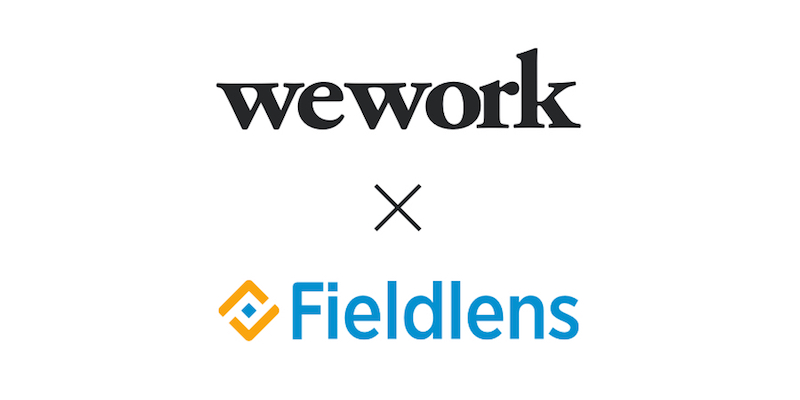
WeWork had been one of Fieldlens' biggest customers before it acquired the six-year-old company this month. Image: WeWork
Fano said that WeWork is “obsessed by the intersection of technology and the construction industry.” And among the things that Fieldlens’ app brings to the table, says Fristch, is a continuous feedback loop that bridges the communications gap that too often separates not only jobsite personnel, but also designers and facilities managers.
As a single company WeWork and Fieldlens will continue to develop and refine construction tools that are made available to the industry at large. “As part of WeWork, we’ll have more resources to continue to focus on our goal of making the work-lives of construction professionals more efficient,” says Chambers.
Related Stories
Mixed-Use | Dec 12, 2017
A new live/work neighborhood is about to get under way in Omaha, Neb.
Walkability and recreation will be key features of West Farm.
Office Buildings | Dec 1, 2017
Telecommunications company’s remodeled headquarters makes use of its unique H shape
lauckgroup designed the new headquarters space.
Office Buildings | Nov 6, 2017
Battle for 50K: Amazon HQ2 pushes cities to rethink urban development
In using an open RFP process with a tight timeline, Amazon created a frenzied, almost hackathon-like atmosphere that it hoped would spark next-level creativity when it comes to urban redevelopment.
Adaptive Reuse | Oct 23, 2017
A tableware storage space is reset to accommodate an investment firm’s headquarters in Raleigh, N.C.
This adaptive reuse establishes more direct visual and physical connections to a growing city.
Office Buildings | Oct 20, 2017
Hybridization of the co-working experience
Exploring potential innovations for the co-working industry.
Giants 400 | Oct 19, 2017
Race for talent drives office designs
Is the shift toward attracting younger workers too much or not enough?
Giants 400 | Oct 18, 2017
Top 105 office construction firms
Turner Construction Co., Structure Tone, and Holder Construction top BD+C’s ranking of the nation’s largest office sector contractors and construction management firms, as reported in the 2017 Giants 300 Report.
Giants 400 | Oct 17, 2017
Top 60 office engineering firms
AECOM, WSP, and Thornton Tomasetti top BD+C’s ranking of the nation’s largest office sector engineering and EA firms, as reported in the 2017 Giants 300 Report.
Giants 400 | Oct 17, 2017
Top 110 office architecture firms
Gensler, Jacobs, and HOK top BD+C’s ranking of the nation’s largest office sector architecture and AE firms, as reported in the 2017 Giants 300 Report.
Reconstruction & Renovation | Sep 28, 2017
Plans for Chicago’s historic Post Office building revealed by 601W Companies and Gensler
The redevelopment project is currently the largest in the nation.


